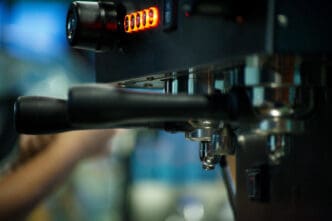Executive Summary
- Swiss manufacturing firms, particularly those in machinery, are facing significant pressure and economic challenges due to punitive U.S. tariffs, threatening their export-driven economy.
- Thermoplan, a key coffee machine supplier to Starbucks, is severely impacted by a 39% U.S. tariff, prompting it to explore new markets and product lines like tea machines for China.
- Swiss companies like Ypsomed are relocating production to circumvent tariffs, and there are broader concerns that other sectors, such as chemical exports, could be targeted next.
The Story So Far
- Swiss manufacturing firms are currently facing significant pressure due to punitive tariffs imposed by the United States, which are particularly impacting key sectors like machinery exports. These tariffs are compelling companies to re-evaluate their production strategies and geographic markets, creating broader economic challenges for Switzerland’s highly export-dependent economy. Furthermore, there is concern that these tariffs could expand to other sectors, such as chemical exports.
Why This Matters
- Punitive U.S. tariffs are directly impacting Swiss manufacturers, forcing companies like Thermoplan to absorb significant costs or strategically shift production and market focus, as seen with Thermoplan exploring the Chinese tea machine market and Ypsomed relocating operations to Germany. This situation signals broader economic challenges for Switzerland’s highly export-dependent economy, prompting concerns about future tariffs on other key sectors and necessitating strategic adjustments to maintain global competitiveness.
Who Thinks What?
- Swiss manufacturing firms, such as Thermoplan and Ypsomed, view the U.S. tariffs as a significant negative impact, compelling them to re-evaluate production strategies, relocate operations, or explore new geographic markets.
- The United States has imposed punitive tariffs on Swiss manufacturing firms, which are affecting long-standing partnerships and creating economic pressure.
- Switzerland’s export-dependent economy and its industries are concerned about the broader implications of these tariffs and are preparing for potential further targeting of other sectors like chemical exports.
Swiss manufacturing firms are experiencing significant pressure due to punitive tariffs imposed by the United States, with a key coffee machine supplier to Starbucks facing a 39% levy that threatens its long-standing partnership. The tariffs are compelling companies to re-evaluate production strategies and geographic markets, signaling broader economic challenges for Switzerland’s export-driven economy.
Impact on Key Manufacturers
Thermoplan, a Swiss coffee machine manufacturer known for supplying Starbucks, is particularly affected by the 39% U.S. tariffs. Adrian Steiner, the company’s CEO, described the measure as a “punch to the gut,” noting mounting losses from the tariffs. In response, Thermoplan is exploring new avenues, including a strategic shift towards producing tea machines for the Chinese market.
Other Swiss companies are also adapting to the new tariff landscape. Medical technology firm Ypsomed, for instance, has begun relocating parts of its production operations to Germany. This move is a direct response to the U.S. tariffs, aiming to circumvent the additional costs imposed on goods manufactured in Switzerland.
Broader Economic Implications
The current tariffs on machinery exports are raising concerns across Switzerland’s highly export-dependent economy. With discussions suggesting that chemical exports could be the next sector targeted, Swiss industries are preparing for potential further impacts, necessitating strategic adjustments to maintain global competitiveness.








